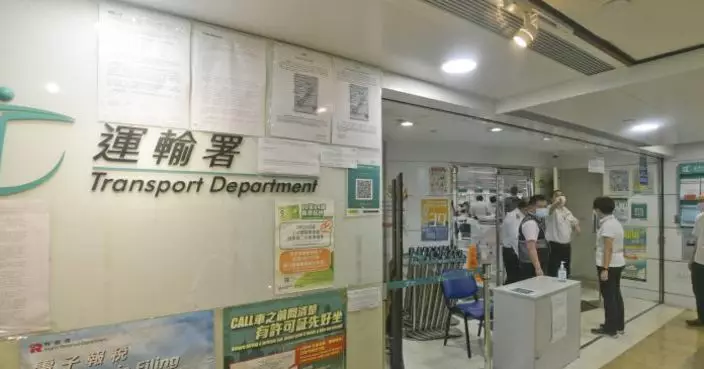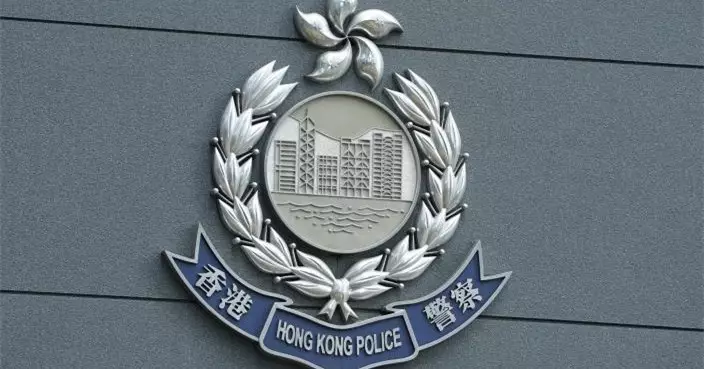Breaking news: legionnaires' disease outbreak update
The Centre for Health Protection (CHP) of the Department of Health today (April 29) reported the latest number of cases of Legionnaires' disease (LD), and stressed the importance of using and maintaining properly designed man-made water systems, adding that susceptible groups should strictly observe relevant precautions.
From April 21 to 27, the CHP recorded four community-acquired LD cases:
"Epidemiological investigations are ongoing to identify potential sources of infection, high-risk exposure and clusters, if any," a spokesman for the CHP said.
As of April 27, 27 LD cases had been recorded this year. In 2023 and 2022, there were 121 and 80 cases respectively.
"Men, people aged over 50, smokers, alcoholics and persons with weakened immunity are more susceptible to LD. Some situations may also increase the risk of infection, including poor maintenance of water systems; living in areas with old water systems, cooling towers or fountains; using electric water heaters, whirlpools and spas or hot water spring spas; and recent stays in hotels or vessels," the spokesman said.
Legionellae are found in various environmental settings and grow well in warm water (20 to 45 degrees Celsius). They can be found in aqueous environments such as water tanks, hot and cold water systems, cooling towers, whirlpools and spas, water fountains and home apparatus that support breathing. People may become infected when they breathe in contaminated droplets (aerosols) and mist generated by artificial water systems, or when handling garden soil, compost and potting mixes.
Immunocompromised persons should:
âThe public should observe the health advice below:
ââThe public may visit the CHP'sLD page, theCode of Practice for Prevention of LDand theHousekeeping Guidelines for Cold and Hot Water Systems for Building Managementof the Prevention of LD Committee, and the CHP'srisk-based strategyfor prevention and control of LD.

Source: AI-generated images
Chp on high alert as imported measles case sparks investigation
The Centre for Health Protection (CHP) of the Department of Health (DH) is today (May 14) investigating an imported case of measles infection and reminded the public that vaccination is the most effective way to prevent measles, and people born outside Hong Kong who might not have received a measles vaccination during childhood should review their vaccination history.
The case involves an 11-month-old girl with good past health. She developed fever, cough and runny nose since May 7, and rash since the following day. She was brought to the Accident and Emergency Department of Pok Oi Hospital on May 9 and admitted to Tuen Mun Hospital on May 10 for treatment. Her respiratory specimen sample tested positive for the measles virus upon nucleic acid testing. She is now in stable condition and is still hospitalised. Her two household contacts remained asymptomatic.
An epidemiological investigation revealed that the patient was born outside Hong Kong and did not receive measles vaccinations in her home country. She lived overseas during the incubation period and arrived in Hong Kong on April 23. The patient did not have contact with measles patients in Hong Kong. The case has been identified as an imported case. During the communicable period, the patient had visited the Immigration and Registration of Persons - Yuen Long Office (Yuen Long Office) located on Kiu Lok Square, Yuen Long, between around 10am and 11.30am on May 6. The CHP will conduct medical surveillance on about 40 staff of the concerned office.
As measles is highly infectious, the CHP has set up an enquiry hotline (2125 2374) for contact tracing of the case. The CHP appealed to the persons who visited the Yuen Long Officelocated on Kiu Lok Square, Yuen Long, between 10am and 11.30am on May 6 to call the hotline. Officers of the CHP will assess their conditions and offer suggestions. The hotline will operate from 9am to 1pm tomorrow (May 15), and from 9am to 5.30pm starting from May 16, Monday to Friday (excluding public holidays).
Investigations are ongoing.
"The global immunisation coverage rates have dropped since the COVID-19 pandemic. Many countries worldwide are facing a resurgence of measles outbreaks. According to the World Health Organization (WHO), the number of measles cases had risen worldwide to over 300 000 cases reported in 2023, a roughly 80 per cent increase from 2022. The Western Pacific region recorded a total of about 5 000 cases in 2023, which representedmore thana 2.5 timeswhen compared with 2022, with persistent transmission found in the Philippines and Malaysia. In view of the continuous increase in measles cases, the WHO has urged parents to bring their children to get vaccinated as early as possible to prevent measles from spreading," a spokesman for the DH said.
The CHP reiterated that vaccination is the most effective way to prevent measles. During the COVID-19 pandemic over the past three years, parents, schools and healthcare workers in Hong Kong continued to support childhood immunisations, striving to maintain the immunisation coverage rates at a high level. As revealed by the vaccination uptake of primary school students and the findings of the territory-wide immunisation surveys regularly conducted by the DH, the two-dose measles vaccination coverage has been consistently maintained at a high level, well above 95 per cent, and the local seroprevalence rates of measles virus antibodies reflect that most of the people in Hong Kong are immune to measles. On the whole, the information available indicates that the risk of large-scale outbreak is considered to be low in Hong Kong. However, it is possible for some not fully vaccinated people to get infected and transmit the measles virus to susceptible people (including children aged below 1 who are not due for the first dose of measles vaccine).
The spokesman reminded members of the public that delays in vaccination will weaken the protection for children against measles, and parents are reminded to maintain up-to-date vaccination for their children for comprehensive and timely protection. All people who are non-immune to measles, especially foreign domestic helpers, people working or studying in tertiary institutions, and workers of sea/land/air border control points who may be at a higher risk of contacting an imported case, should receive two doses of measles-containing vaccine. In general, people can be considered as non-immune to measles if they (i) did not have the infection confirmed by laboratory test before, and (ii) had not received two doses of measles-containing vaccines in the past, or have unknown vaccination status or unknown immunity against measles. On the other hand, as measles was endemic in Hong Kong and most parts of the world before 1967, people born before 1967 are considered to have acquired immunity to measles through natural infection.
The spokesman supplemented that, members of the public who are planning to travel to places with a high incidence or outbreaks of measles should review their vaccination history and past medical history, especially people born outside Hong Kong who might not have received a measles vaccination during childhood. Those who have not received two doses of measles-containing vaccines, with unknown vaccination history or unknown immunity against measles, are urged to consult their doctor for advice on vaccinations at least two weeks before departure.
The spokesman advised, "The incubation period (the period from infection to appearance of illness) of measles ranges from seven days to 21 days. Symptoms of measles include fever, skin rash, cough, runny nose and red eyes. If symptoms arise, members of the public should wear surgical masks, stop going to work or school and avoid going to crowded places. They should also avoid contact with non-immune persons, especially persons with weakened immunity, pregnant women and children aged below 1. Those suspected to have been infected are advised to seek medical attention as early as possible and reveal relevant contact history of measles to healthcare professionals."
Besides being vaccinated against measles, members of the public should take the following measures to prevent infection:
For more information on measles, the public may visit the CHP'smeasles thematic page. Members of the public who are going to travel can visit the website of the DH'sTravel Health Servicefor news of measles outbreaks outside Hong Kong.

Source: AI-generated images










